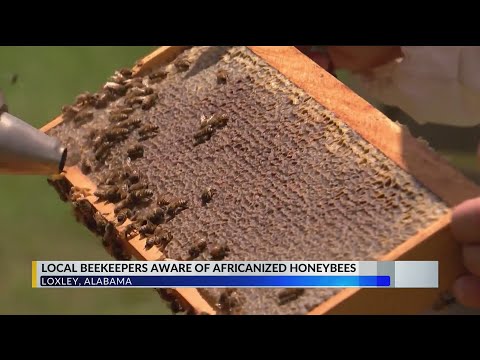Alabama officials have found an invasive bee species in parts of the state, posing a threat to humans and animals. The Alabama Department of Agriculture and Industries (ADAI) announced on Tuesday that feral swarms of Africanized honeybees, commonly known as “killer bees,” were found in Jackson and St. Clair counties. To safeguard Alabama’s honeybees, local beekeepers took action to eliminate the killer bees upon detection, according to state officials.
“ADAI is taking swift action to mitigate any risks associated with these invasive bees,” the department stated in its release. “Traps are being set up within a five-mile radius of the detection sites to capture and identify any further presence of [Africanized honeybees].”
Although the physical appearance of a killer bee does not differ significantly from that of the European honeybee, the ADAI explained that the invasive species behaves differently. For instance, killer bees are more defensive than honeybees and will respond to threats in larger numbers. They will also pursue a threat “for over a mile,” whereas honeybees only chase a threat for a few hundred yards.
According to the ADAI, killer bees also “nest in any available cavity or in the open,” such as water meter boxes, metal utility poles, concrete blocks, junk piles, holes in the ground, or along house eaves. In contrast, local honeybees nest in larger cavities and are always aboveground. Common homes for honeybees include a beekeeper’s hive, hollow trees, and cavities in walls and tree limbs.
“The public is urged to stay vigilant and report any unusually aggressive bee behavior to ADAI,” the department advised. “Africanized honeybees can be highly defensive and pose a risk to humans and animals. It is important to avoid provoking any swarms and to seek professional assistance for bee removal.”

